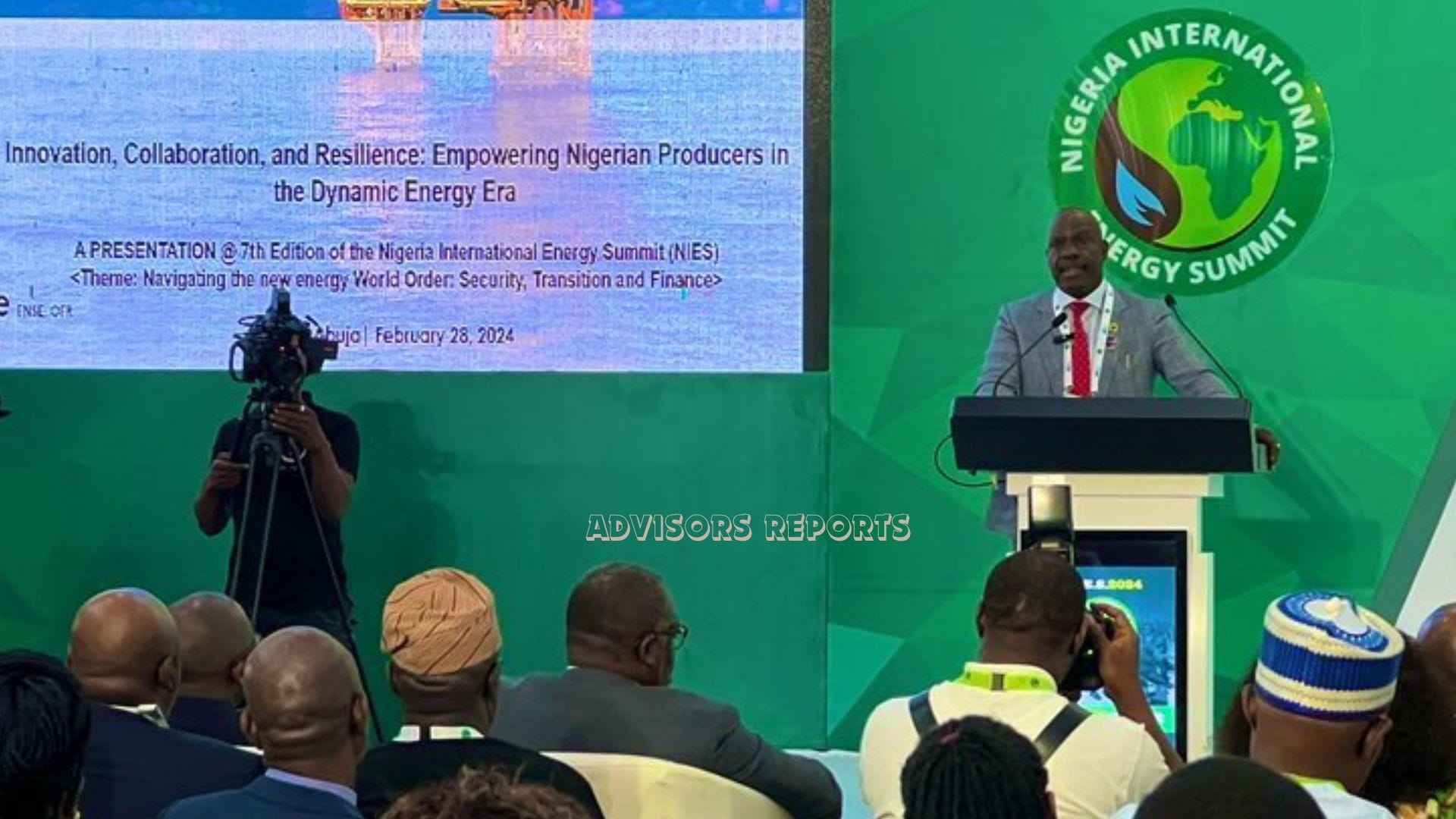Oredola Adeola
The Nigerian Upstream Petroleum Regulatory Commission (NUPRC) has reaffirmed its commitment to conducting the 2024 closed bids through a rigorous, fair, and competitive process, emphasising that the move was sanctioned under Section 73(1) of the Petroleum Industry Act.
Engr. Gbenga Komolafe, Chief Executive, NUPRC made this known in a keynote address he presented on Wednesday during the 7th Edition of the Nigeria International Energy Summit (NIES) themed “Navigating the new energy World Order: Security, Transition and Finance”.
According to him the Commission has created further investment opportunities through the ongoing licensing round for seven deepwater acreages as well as the proposed 2024 closed bids expected to increase the nation’s reserve and production and boost national revenue.
He therefore emphasised that both open and closed bids are permissible by the law as Section 73(1) of the PIA does not preclude either approach, so far as the licensing round is “…based on a fair, transparent and competitive bidding process”.
Komolafe in his address further noted that the actual national production currently averages 1.33 million barrels of oil per day and 256 thousand barrels of condensate per day, the national technical production potential currently stands at 2.26 million bpd while the current OPEC quota is 1.5 million bopd.
He revealed that closing the gap between the actual oil production and the technical potential presents a significant opportunity for Nigeria to unlock additional revenue streams, address the current foreign exchange gap and strengthen her economic resilience.
The NUPRC boss said, “Since its inception in October 2021, the Commission has been working assiduously to ensure that the PIA is effectively implemented for growth in oil and gas reserves as well as achieving the national average daily production target set at 2.5 million barrels of oil and condensate per day in the near term.
“The oil and gas reserves in Nigeria represents 30% and 34% of the African oil and gas reserves respectively. Our vast reserves hold immense potential for sustainable development and prosperity,” he said.
According to Komolafe, given the disparity between the average daily production and the national production potential, the Commission is taking strategic measures to arrest some challenges confronting us in order to boost production.
These initiatives according to him, include, measures to improve transparency in hydrocarbon measurement and accounting, including technical integrity audit of the existing metering facilities with the intent to get the meters working at industry acceptable limits for enhanced hydrocarbon accounting as against the old practice of production reporting.
“Collaborative work programme administration with the E & P companies, and close monitoring to ensure that they meet their work programme obligations.
He stated that through strategic initiatives and close collaboration with industry stakeholders, the Commission is actively fostering an environment that attracts investments aligned with national objectives.
This dedication has already yielded impressive results, with notable achievements such as:
- Approval of 51 Field Development Plans in 2022-2023, expected to draw a substantial USD 17.64 billion investment and deliver significant oil and gas recovery.
- Approximately USD 2.5 billion investment in drilling 175 wells during the same period.
- Investment of USD 2.68 billion in 842 well workovers and interventions, leading to increased oil production.
- Enhanced exploration activities including seismic operations and drillings.
- Surge in rig count from 8 to an average of 30 rigs over the past year.
- Successful early oil production in newly developed fields like Ikike, Efe, Utapate, Akubo, Oyo, among others.
He further disclosed that the Commission is intensifying efforts by collaborating with International Oil Companies (IOCs) to expedite the maturation and development of high-volume deep offshore assets.
Komolafe also reassured willing investors that implementation of the Host Communities Development Trust (HCDT) provisions of the PIA has restored confidence and created social inclusion for the host communities by the operators.
According to him, the Commission, in carrying out its oversight roles, has registered a total of One Hundred and Three (103) HCDTs, and has deployed an intelligent digital, platform for reporting, monitoring, and ensuring transparent administration of the HCDTs for sustainable operations in the Nigerian communities.
NUPRC boss further stated that the Commission is at the forefront of a national mission to achieve a zero-flare target by 2030 and net zero carbon emissions by 2060.
He stated that spearheading this ambitious drive are various initiatives, notably the innovative flare commercialization program known as the NGFCP.
Komolafe stated that the establishment of a College of Awardees, post the allocation of 49 NGFCP flare sites, serves as a platform for honorees to share expertise, connect with stakeholders, and access vital support systems.
This collaborative effort, according to him, aims to unite top-tier service providers, technology experts, financiers, and multilateral agencies to ensure the seamless execution of flare commercialization projects.
Furthermore, NUPRC’s Chief Executive highlighted the organization’s remarkable progress in embracing innovation, this includes, transitioning from manual operations to a tech-driven approach over the last three years, which has further empowered NUPRC to harness data analytics and artificial intelligence.
He said, “This shift has not only optimized efficiency but also enabled informed decision-making, eradicated delays, and bolstered productivity, transparency, and accountability.
“Moreover, this tech evolution has instilled a culture of technological advancement within Nigeria’s oil and gas sector, with companies increasingly investing in cutting-edge technologies like data analytics,” Engr. Komolafe said.




